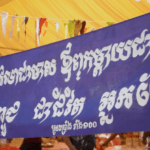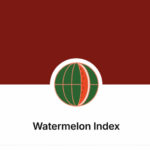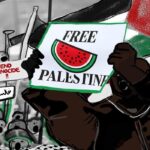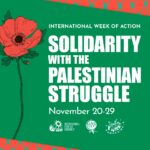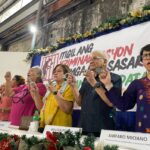Across Asia, ‘development’ has become synonymous with rapid economic growth, to be achieved through predominantly large-scale, private investments, natural resource extraction and expansion of markets in new frontiers. The development model promoted by the region’s governments prioritizes trade and investment liberalization, financialisation, corporate friends regulation and privatization. All governments in the region are increasingly putting into place corporate investment-friendly policies, and offering incentives to attract both domestic and foreign investors. Export processing zones (EPZs), special economic zones (SEZs) and Special Investment Zones (SIZs) are proliferating throughout the region, offering incentives and reduced barriers for investors in order to boost export-driven growth. With the US-led Trans Pacific Partnership faltering, the Regional Comprehensive Economic Partnership, being negotiated by the 10-member ASEAN bloc and China, India, Japan, South Korea, Australia and New Zealand, is making headway. Such agreements pose grave threats to human rights and public welfare, especially in regard to the stringent intellectual property rights (IPR) regimes that impact access to medicines, public health and food, and the investor-state dispute settlements (ISDS), which restrict governmental ability to regulate and protect public interest.
While this liberal trade and investment environment is beneficial to investors, it has numerous adverse impacts for people. Across the region, local populations in rural and urban areas are experiencing both erosion and capture of land, water, forests and other natural resources, spurred by industrial agriculture, extractive industry, large infrastructure, property and real estate booms, and urbanization. Local communities, small-scale food producers and workers face increasing threats of physical displacement and dispossession of their homes, wealth, assets and livelihoods. In a race to the bottom, wage labour in Asia is marked by increasing precarity, informalization, hazardous working conditions, poverty wages and a lack of social protections. The burden is felt most heavily by women, who receive lower wages, and are usually the last to be hired, and first to be fired.
The development paradigm has created a social landscape marked by deep inequalities, including vast inequalities of wealth and income, and inequality of rights and power. Corporations and powerful elites receive institutional and legal backing to continue to extract and exploit, while the poorest are left on the sidelines. Exacerbating these conditions are extreme weather events, seasons that are growing more unpredictable each year, and the reality of deepening climate change.
While there has been a recognition of the ‘fractured’ nature of global politics and environment (World Economic Forum) and how globalisation policies have worsened inequality, the response has been to push for a model of “inclusive development” that pushes for more integration into the global economy and continuing embrace of neoliberal policies with concessions on people’s participation and dialogue rather than a serious pursuit of systemic alternatives.
The Political Economy of Development thematic area seeks to unpack the concept, policies, tools, and practices of the dominant development model; to raise critical understanding of these issues with broad constituencies; support frontline communities challenging negative impacts of development; and create ideas and mobilisation for alternative visions of development.
Projects:
Trade and investment: Our trade and investment project revolves around local, national and international campaigns on free-trade and investment negotiations and agreements, including RCEP and the WTO. We coordinate the EU-ASEAN FTA Campaign Network, and provide analyses of bilateral investment treaties, free-trade agreements, and ISDS provisions to social movements, CSOs, parliamentarians, unions and the press in the region. We are also working with international campaigns to demand greater accountability from corporations and international financial institutions (IFIs) through the Global Campaign to Dismantle Corporate Power, the NGO Forum on ADB, the Asian Peoples’ Safeguards and International Planning Committee.
Investment in the Mekong: The project monitors and examines investment trends in the Mekong (Thailand, Cambodia, Laos, Myanmar, and Vietnam), improves understanding of these trends amongst frontline communities impacted by destructive investment, and supports these communities to advocate for their rights.
Corporate Accountability: This project examines issues of corporate control and abuse in Asia, as well as mechanisms to reign in corporate power, such as the UN Binding Treaty on Transnational Corporations and human rights.

